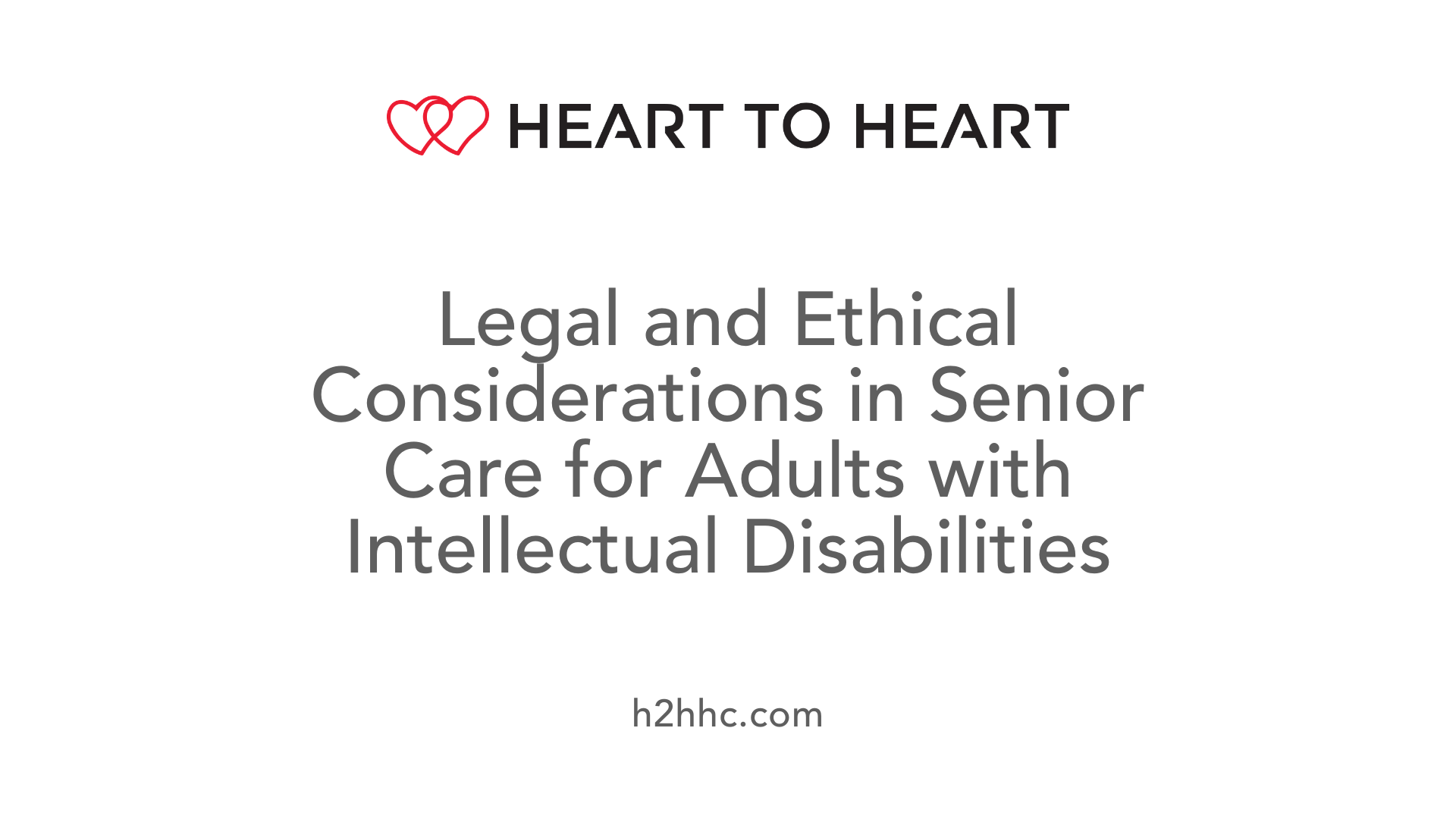Understanding the Growing Needs of Aging Adults with Intellectual and Developmental Disabilities
As the population of adults with intellectual and developmental disabilities (I/DD) lives longer than ever before, supported by medical advances and social policies, there is an increasing need to develop comprehensive strategies that promote their well-being, independence, and community inclusion. Nearly one million households in the U.S. support aging caregivers caring for adults with I/DD, a challenge that demands coordinated community supports, tailored healthcare, legal safeguards, and effective education for caregivers and professionals.
Lifespan and Health Challenges of Aging Adults with I/DD
 Adults with intellectual and developmental disabilities (I/DD) are living longer than ever before, with many reaching their 60s, 70s, and beyond. This increased longevity highlights both progress and emerging challenges in health management for this population.
Adults with intellectual and developmental disabilities (I/DD) are living longer than ever before, with many reaching their 60s, 70s, and beyond. This increased longevity highlights both progress and emerging challenges in health management for this population.
Due to medical advances and social support, people with I/DD are experiencing near-normal life expectancies, but they often face significant health disparities. These disparities include higher rates of chronic illnesses such as obesity, diabetes, heart disease, and mental health issues like depression and anxiety. Many also encounter sensory impairments, including hearing and vision problems, which may go undiagnosed or untreated.
Common health concerns for aging individuals with I/DD include osteoporosis, seizure disorders, cardiovascular conditions, and early-onset Alzheimer’s disease, especially among those with Down syndrome. These conditions require proactive, tailored healthcare strategies to ensure quality of life.
Management and support options for adults with intellectual disabilities include a combination of personalized educational programs, behavioral interventions, and community-based support systems. Vocational training and supported employment foster independence, while social services like respite care and peer support groups promote social inclusion.
Effective teaching strategies encompass clear, visual, and repetitive approaches tailored to individual learning styles to facilitate skill development. Communication adaptations involve simple language, visual cues, and confirming understanding to promote meaningful interactions. Healthcare providers must use respectful, straightforward language, ensuring active listening and patience to effectively engage adults with I/DD.
Health management strategies are critical for aging adults with I/DD. These include regular health checkups that are sensitive to their communication needs, managing chronic health conditions comprehensively, and incorporating sensory accommodations. Multidisciplinary teams—including medical providers, occupational therapists, and social workers—collaborate to address complex health needs.
Legal and ethical considerations also play a vital role. Advance directives such as living wills, and supported decision-making frameworks enable individuals to maintain autonomy while safeguarding their well-being.
Ongoing education for healthcare professionals, awareness of diagnostic overshadowing (where symptoms are wrongly attributed to I/DD), and community engagement are essential to close gaps in care. By implementing these strategies, caregivers and providers can better support aging adults with I/DD in living healthier, more independent lives.
Supporting a Dignified and Inclusive Aging Experience
As individuals with I/DD age, their support systems must evolve to accommodate their changing health, social, and legal needs. Developing proactive, coordinated approaches involving healthcare providers, community organizations, families, and policymakers is essential to ensure their dignity, safety, and active community participation. Education efforts for caregivers and professionals, the use of innovative assistive technologies, and policies promoting autonomy and supported decision-making will enable aging adults with I/DD to live meaningful lives fulfilled with independence and community engagement. Investing in these strategies not only meets immediate needs but also establishes a sustainable framework for future generations.
References